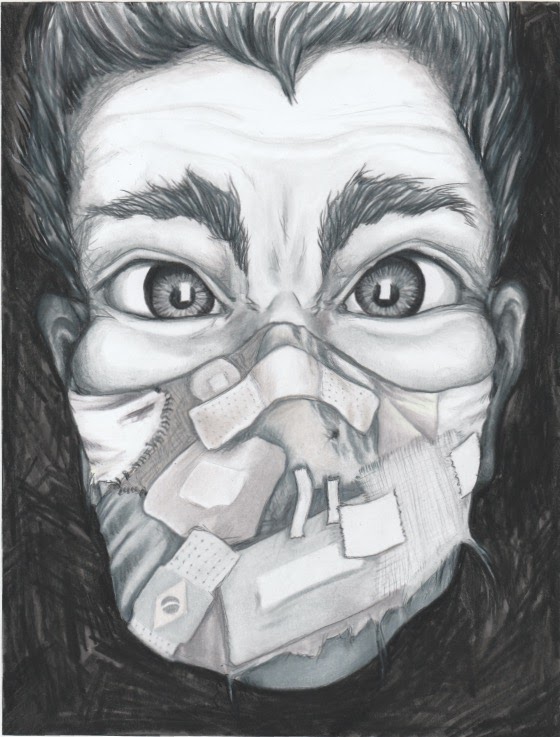Removing the mask of government incompetence
The education debacle in Brazil
As of November, Brazil’s schools have spent almost 270 days without students, and are only now beginning to open their doors. Meanwhile, we see restaurants, bars, and beaches crowded with people, and a seemingly never-ending number of infections and deceased. Of the nation’s 56 million students, 19.5 million have no access to distance learning and have thus lacked any form of education since March, if not for TV Cultura’s daily education programs– clearly not enough. The other students, those who have had the opportunity to continue studying virtually, know that distance learning is not as successful as in-person education. These nine months may not seem like much now, but they can and will have abysmal consequences if schools do not reopen. The delay, or unwillingness, to reopen schools on the part of Brazil’s government has removed a mask that we can and should rip off in public; the government’s incompetence.
Brazil’s government has proudly– and perhaps embarrassingly for its citizens– shown off its lack of leadership all throughout this period. Some say that governments are rightfully weary of a potential climb in infections the reopening could cause, but this is not at all the case in the largest South American country. In Santo André, the town hall has allowed for buffets and other party venues to open for up to 100 guests but has already decreed that schools will not reopen until 2021. If the matter of concern is infections rising upon reopening, why should the risk be taken at a party rather than at schools? This is complete and utter hypocrisy, to the point where for outsiders it may erroneously seem like the nation’s education system is good enough to keep its door closed for more than a year. I guarantee you that is not the case. Furthermore, gyms, malls, shops, kiosks, and clubs were allowed to reopen in July-August, while schools either remain closed or are only now, in November, beginning to open their doors. That is the problem. If anything, schools must’ve reopened before, or at the latest, at the same time as other establishments. Why has this not happened? It’s simple; because this nation has never prioritized its education, and always searches for short-term economic solutions, rather than long-term policies and plans. In Spain, even as the second round of lockdown begins to take shape, going to or taking a child to school remains an essential service. In the UK, Prime Minister Boris Johnson has already said that pubs might have to close so that children can go to school. The delay to open schools portrays a government willing to risk health, safety and future prosperity for an economic “quick fix”.
A country can only go as far as its people can take it, and that relies heavily on education. Therefore, how can a nation that treats bars and buffets as more essential than schools ever improve? Again, it’s simple; it won’t. Brazil has not made education a priority when reopening– a huge sign of ineptitude– and has placed another nail in its coffin, chucking away more of the nation’s already splintering credibility.
While I believe that education should undoubtedly reopen before my nearest boteco, I will also iterate, however, that it should not be compulsory to send one’s child back to school. Those children who live with people considered at risk, should not endanger the lives of their loved ones to go back to study, but at the very least, a return to in-person learning should be available. Reopening schools does not require any absurd or unknown protocols. It requires the basics: hand sanitizer, masks, social distancing, and personal hygiene, much like all the public establishments that have reopened. However, our government has not taken significant steps to do so in public institutions, and to put it into São Paulo state deputy Daniel José’s words, “Ao invés de fazer o certo, estão fazendo o fácil.” (Instead of doing what is right, they are doing what is easy.) That sums up the situation quite nicely. A lack of leadership has transformed education into the topic of heated political debates, rather than a societal consensus. The lack of education will also stunt, delay, derail, and interrupt many children’s learning, causing devastating consequences, since schools act as “as a force for social mobility and a way to equalize chances in life” as Olivier Schutter, UN Special Rapporteur commented on extreme poverty and human rights.
Those without distance learning or with very precarious setups will be the ones dealt the biggest blow, creating yet another hurdle that must be overcome not only to reduce inequality but to create a better nation for all who inhabit it. Moreover, UNICEF has warned that for poorer families, being away from school exponentially increases the risk of physical or psychological abuse and can lead children to quit school. The failure to reopen schools puts children in environments where they can’t and will not grow, environments where they are not safe, highlighting the ineptitude, carelessness, and indifference of those who we call our leaders.
Rio de Janeiro saw perhaps the biggest case of government incompetence with regards to the reopening of schools. In a decision by the city’s judicial court, the town hall’s request for the reopening of private schools was denied. This was on the basis that reopening private institutions before public ones would be unfair, and would affect the balance between those who use paid versus those who rely on free education. That may seem like a valid argument, but in Brazil’s case, it is not. First off, the quality of education between the two systems already was an abyss, and it wouldn’t be a decision like this that would change that. Secondly, parents who have been paying their tuition bills, are willing to allow their children’s return and go to school which can reopen right away, should do so. Private schools, which have more resources, could also act as the vanguard, paving the way and educating public schools on reopening policies and procedures. Lastly, and perhaps most importantly, the government shouldn’t be focusing on restricting those who already have access to a good education, but rather on employing their resources to support those lacking it. This decision has shown that our leaders would rather make things “equal” by making it bad for all, rather than improving the situation for those who are worse off.
Brazil’s schools are starting to reopen, but for some, this may be too little, too late. While other nations have prioritized books, we have prioritized beer. Even when the chance to open some schools was given to our judiciary branch, they turned it down, looking to “equal” the playing field by limiting everyone’s opportunities. Every day that schools spent with their doors shut put more children in danger of abuse. And still, very little has been done. With this failure, another blow is struck, and confidence in our leaders dwindles. They have been unmasked, we have been unmasked. Unmasked as a nation that consistently takes the wrong path, and seems to like stagnation, with a phobia of progress. This shouldn’t be Brazil, but it is. We must not forget that schools, and education in general, should always be a city’s, state’s, and nation’s focus. Brazil’s public and private education institutions must open and stay that way.
Sources: DataSenado, Terra, Diário Regional, Globo, Instagram, Reuters, Globo, Agência Brasil

Felipe is excited to go into his senior year at Graded and his first year as POV Editor. An avid reader, he is beaming to get the chance to read articles...

